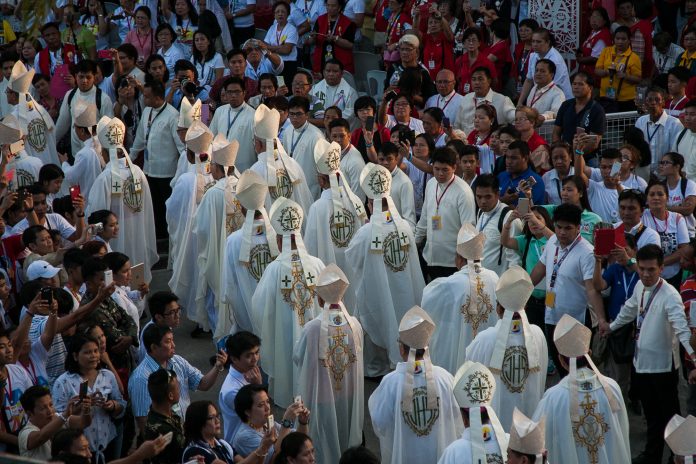Obedience is a virtue that is at the core of the Church’s institutional or organizational culture. It starts within the family. Traditionally, a wife is expected to be obedient to her husband. Children are expected to be obedient to their parents.
Diocesan priests are expected to be obedient to their bishop and bishops are expected to be obedient to the pope. Religious men and women make the vow of obedience and are expected to be obedient to their superiors.
In the parishes, the laity are expected to be obedient to their parish priests and their assistants.
Since Vatican II, there have been changes in the understanding of obedience. The recent emphasis on synodality has further put into question the traditional understanding and exercise of obedience.
It has become difficult for bishops, priests, and religious superiors to exercise their authority and expect blind obedience from those they consider their subordinates.
What does obedience mean in the context of synodality which promotes communion, participation, and mission?
In a dominant institutional model of the Church, obedience simply means following the orders and commands of those who are above us – the pope, bishops, parish priests, superiors, etc.
Obedience is required and expected from subordinates. Those below obey those on the top. Those who occupy high positions demand obedience from those of lower ranks. Disobedience is punished. This is how the order is maintained.
This understanding of obedience is based on the presumption that only the leaders are wise and have the monopoly of knowledge. They make all the decisions. It is through them that God’s will is known. They do not have to listen to those below them. The subordinates listen to them and comply with their wishes. This mentality is behind the authoritarian tendencies in the Church. This is the root of clericalism.
Since Vatican II there has been a paradigm shift in the understanding of how authority and leadership is understood and exercised in the Church due to the increasing dominance of the ecclesiological model of communion and people of God. The recent emphasis on synodality is part of this process. This requires a rethinking of what obedience means and how it should be practiced.
Etymologically, obedience is derived from Latin “ob audire” – to listen to. Listening to the will of God and doing God’s will is at the root of obedience. The question is how is God’s will known?
How do we discern God’s will? In a pyramidal, institutional model the answer is clear: God’s will is mediated through those who occupy authority and leadership in the Church. We listen to the voice of God when we listen to our leaders and obey their commands and decrees.
In the vision of the Church as communion and people of God, there are multiple sources that need to be listened to and not just the leaders: the Word of God as recorded in the Sacred Texts and transmitted by Tradition, the historical events and signs of the times, community, the individual conscience, etc. The voice of God is mediated through the Church which is the people of God, the body of Christ, and the temple of the Holy Spirit.
This understanding of obedience requires a different style of leadership – participative, consultative, and collaborative. This means partnership and co-responsibility rather than subordination.
This presupposes recognition of equality in dignity in the Church which is grounded on the ecclesiology of communion. This vision of the Church rejects a vertical organizational structure with a chain of command like the army. Synodality means that those who lead listen to the lay faithful and enable them to actively participate in the decision-making process and in carrying out the Church’s mission.
All the faithful by virtue of their baptism are united to Christ and empowered by the Holy Spirit to actively participate in the Church’s mission. Lumen Gentium, the dogmatic constitution of the Church, emphasizes that the clergy is not over and above the people of God but is at the service of the people of God.
Thus, instead of issuing directives and commands, those in leadership and positions of authority need to lead the community of God’s people in prayerful discernment – to listen together to the signs of the times and to the promptings of the Holy Spirit so that they can journey together in communion and fulfill the Church’s mission actively in the present circumstances and the decades to come. Thus, the Church becomes truly an obedient community.
Fr. Amado Picardal is a Redemptorist priest and human rights and peace advocate. He was executive secretary of the CBCP Episcopal Committee on Basic Ecclesial Communities. He also served as co-executive secretary of the Commission of Justice, Peace, and Integrity of Creation of the Union of Superiors General in Rome.









